The 10 Best Management Games of the Last 10 Years
July 30, 2020 | 10:45
Companies: #blue-byte #frontier-developments #introversion-software #paradox-interactive #two-point-studios #ubisoft

Management games are a curious offshoot of the strategy genre, one that focusses less on domination and more on creating a well-oiled machine. That machine can be anything from a factory to a football team, but they all share the same functionality of building infrastructure and developing systems, and the same love for dynamic and mechanical play.
Management games were hugely popular in the nineties. But suffered a serious lull in the years after the Millennium. Recently, however, they’ve returned in force, with all manner of developers offering everything from classic city-builders and theme-based management games, to new ideas such as colony simulations and factory-building extravaganzas. To celebrate this renewed affection for all things managerial, we’ve put together a list of our favourite management games from the last decade.
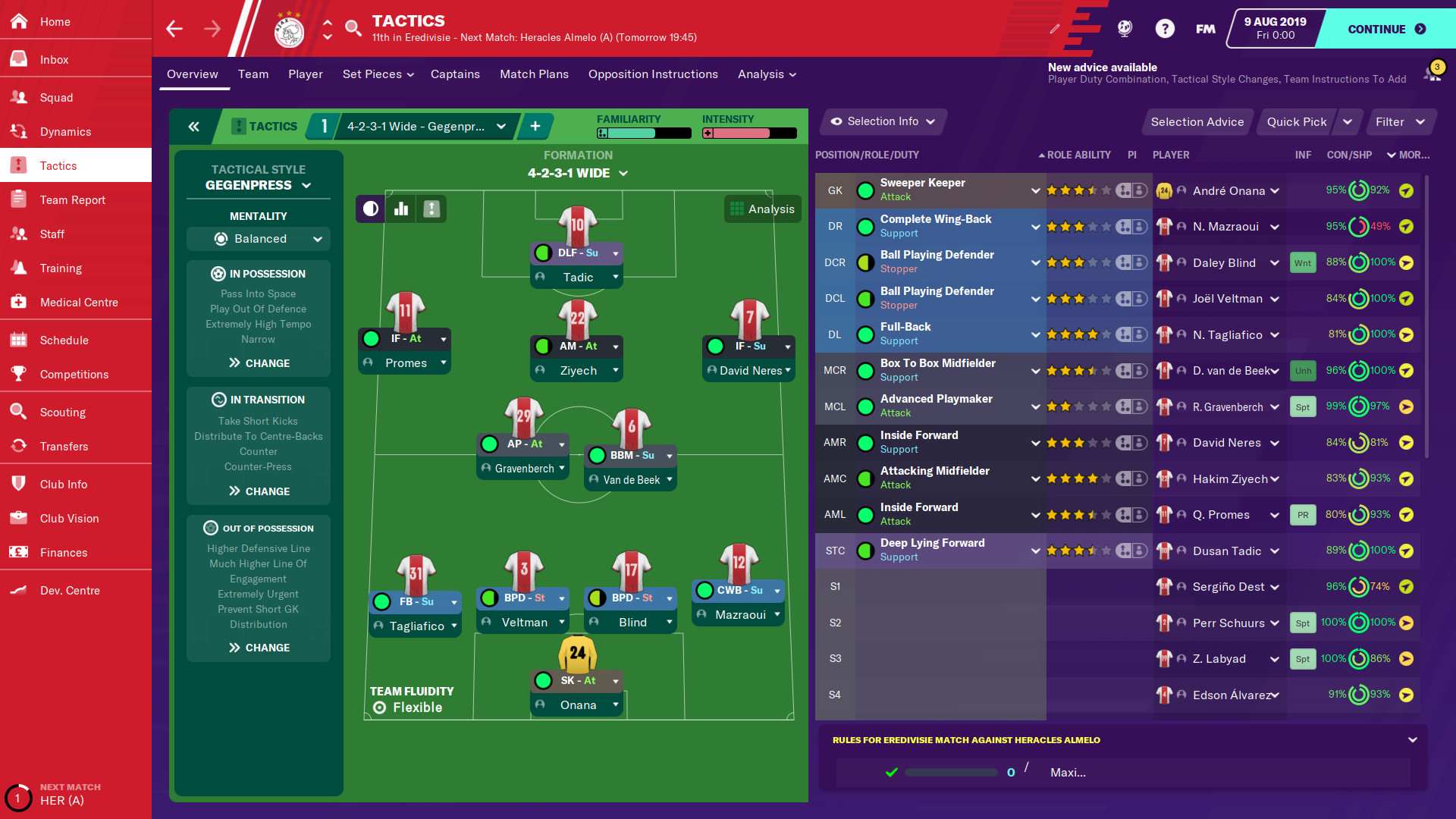
10. Football Manager 2020
It’s so omnipresent, ever churning away in the background like a good assistant manager, that it’s easy to forget that it exists at all. Yet, for nearly twenty years it has consistently offered one of the best management experiences around, updating itself more faithfully than an AI Golden Retriever.
It’s also one of the purest management games, aiming to replicate as closely as possible the experience of being the second-biggest punching bag in football (after the referee, of course) From training to transfers to post-match press conferences, to spitting formation orders on the side-line, Football Manager aims to replicate the lot.
Football Manager is such an iterative game, so reliant on the latest football-related data, choosing which version is the best is quite tricky. We’ve pipped for the latest version, but I’m sure avid Football Manager fans will have a personal favourite. Either way, for its long and dedicated service to both football and managing, Football Manager is very much deserving of a place on this list.
 9. Cities: Skylines
9. Cities: Skylines
Somewhere out there is an alternate timeline where EA and Maxis didn’t massively screw-up SimCity, and as a consequence, Cities: Skylines never existed. For once, I’m glad we live in this universe instead. Pitching itself as “SimCity, but we won’t arbitrarily restrict you to a tiny building area,” Skylines quickly won over disaffected SimCity fans, and immediately became the city-builder to beat.
Five years, on and Skylines has expanded massively since its (already impressive) original launch. Alongside the base game, there’s a whole other city’s worth of DLC available these days, adding everything from day/night cycles to ecologically-friendly buildings, expansive ports and harbours, and of course, natural disasters.
The potential in Skyline’s tool-set is truly remarkable…if you can afford it. The way Paradox and Colossal Order has approached DLC has come in for some criticism. But it doesn’t change the fact that the vanilla game itself is a fantastic creation, more than worth your time in and of itself.
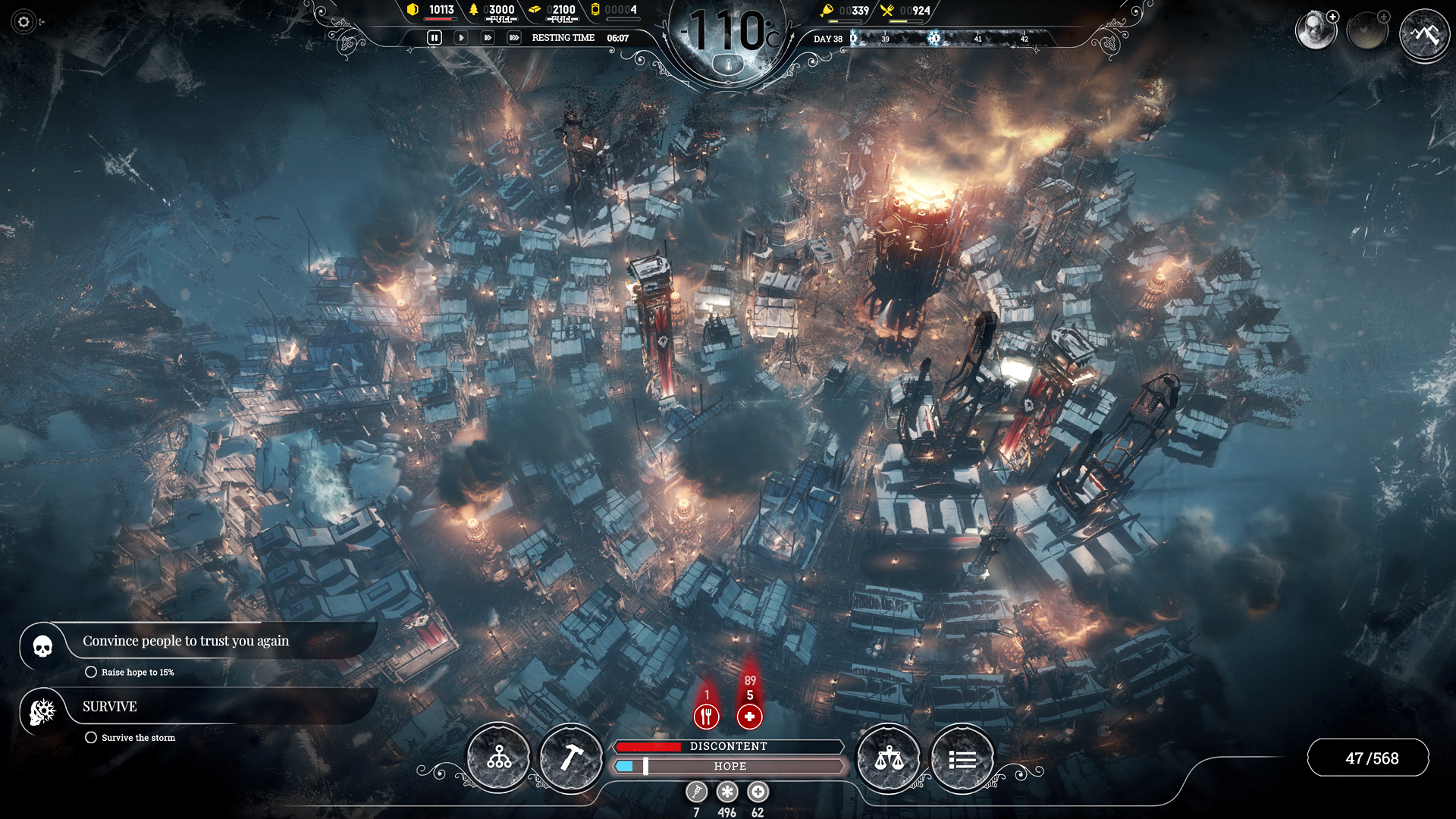
8. Frostpunk
Management games often pitch themselves on the more relaxing side of gaming. But if you’ve ever tried managing anything for real, whether it’s an office or a shop or a children’s party, you’ll know this is far from the truth. Frostpunk dedicates itself to bringing the stress and terror back into management, putting you in charge of a small and cramped settlement struggling against an icebound apocalypse. The conditions are harsh and resources scarce. Yet you’ve got to somehow make lemonade out of these frozen, withered lemons.
Frostpunk gets to the heart of management, making difficult decisions that nobody else is willing to make. You’ll be constantly balancing the needs of your citizens with their desires and morale. A tavern will go down well with everyone in your town, but when sickness ravages the population a short while later, you may think it would have been a better idea to build a medical centre instead.
The broad nature of how you take charge of your settlement is entirely up to you. You can attempt to be a compassionate leader, or rule with an iron first, drafting harsh laws and strictly regulating available supplies. Both approaches have their risks, and if your citizens become unhappy enough, they may begin to abandon the city, or even try to banish you from within its (relatively) warm walls. The depth and intricacy of Frostpunk’s social simulation is hugely impressive, and makes it more than worthy of a place on this list.
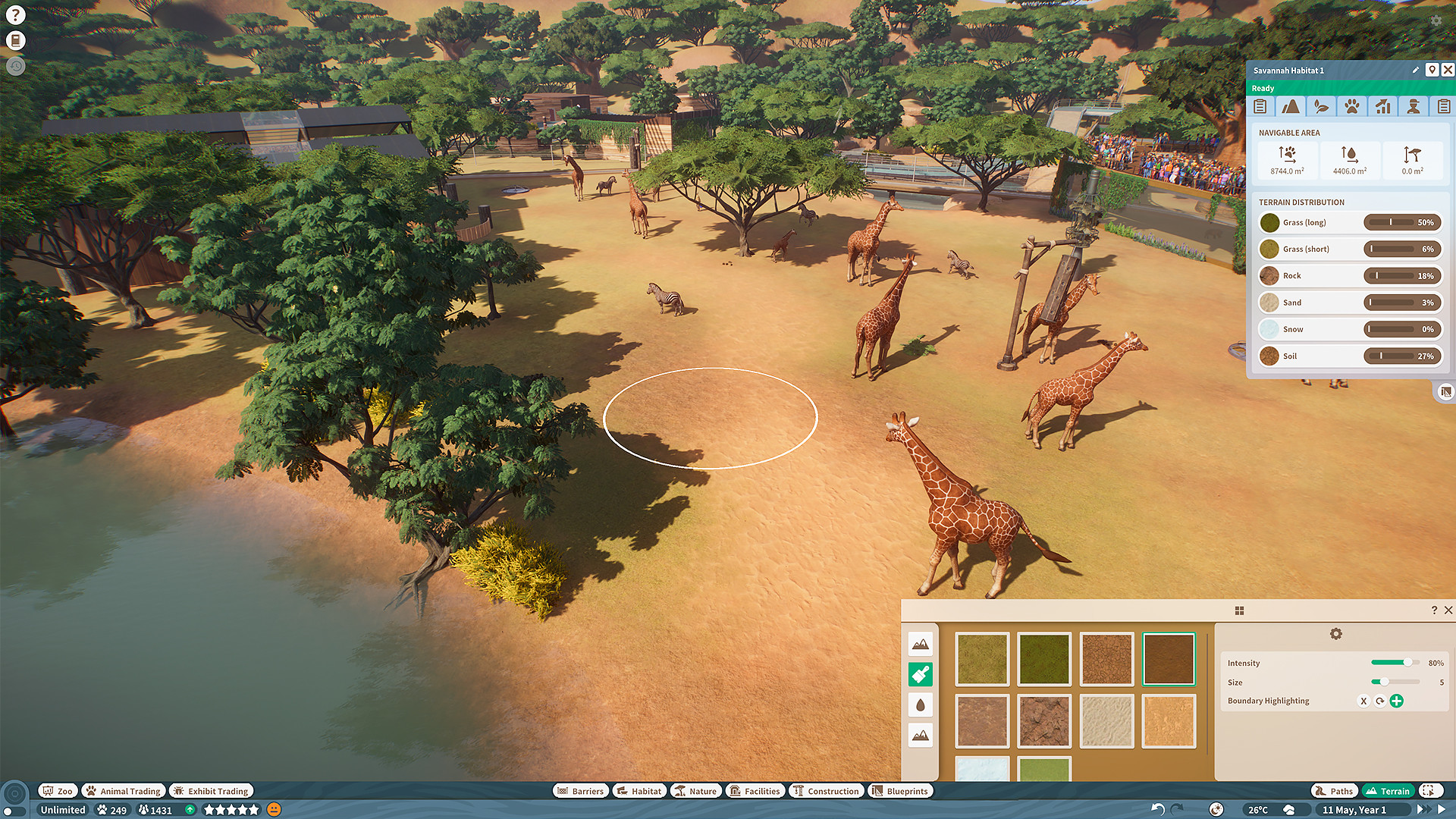
7. Planet Zoo
Frontier Development’s Planet Coaster was a fantastic creation tool, but the actual management side of the experience was sorely underdeveloped. Planet Zoo redresses this, offering a management experience that’s as comprehensive as it is stunning to look at.
The goal, as you can probably guess, is to build and maintain a series of menageries for the paying public to come and gawk at. You need to build enclosures and source animals for your zoo, while ensuring everything is safe for both the park’s visitors and its inhabitants.
It’s in this last element where Planet Zoo distinguishes itself from Frontier’s earlier work. Planet Zoo’s animals are demanding little critters. Not only do they need to be fed and watered, but their enclosures must be kept clean and the animals protected from illness, and they need to be safely kept away from both the paying public and other animals that might endanger them.
The simulation is highly detailed, such that small changes in the park can have dramatic ramifications. An animal giving birth to an unexpectedly large litter can trigger overcrowding issues, while a disease that goes unchecked can potentially ravage the zoo. Add to that rich customisation tools, a lengthy campaign mode, and wonderfully detailed animal models and animations, and you’ve got one of the most sumptuous management games of the last few years.
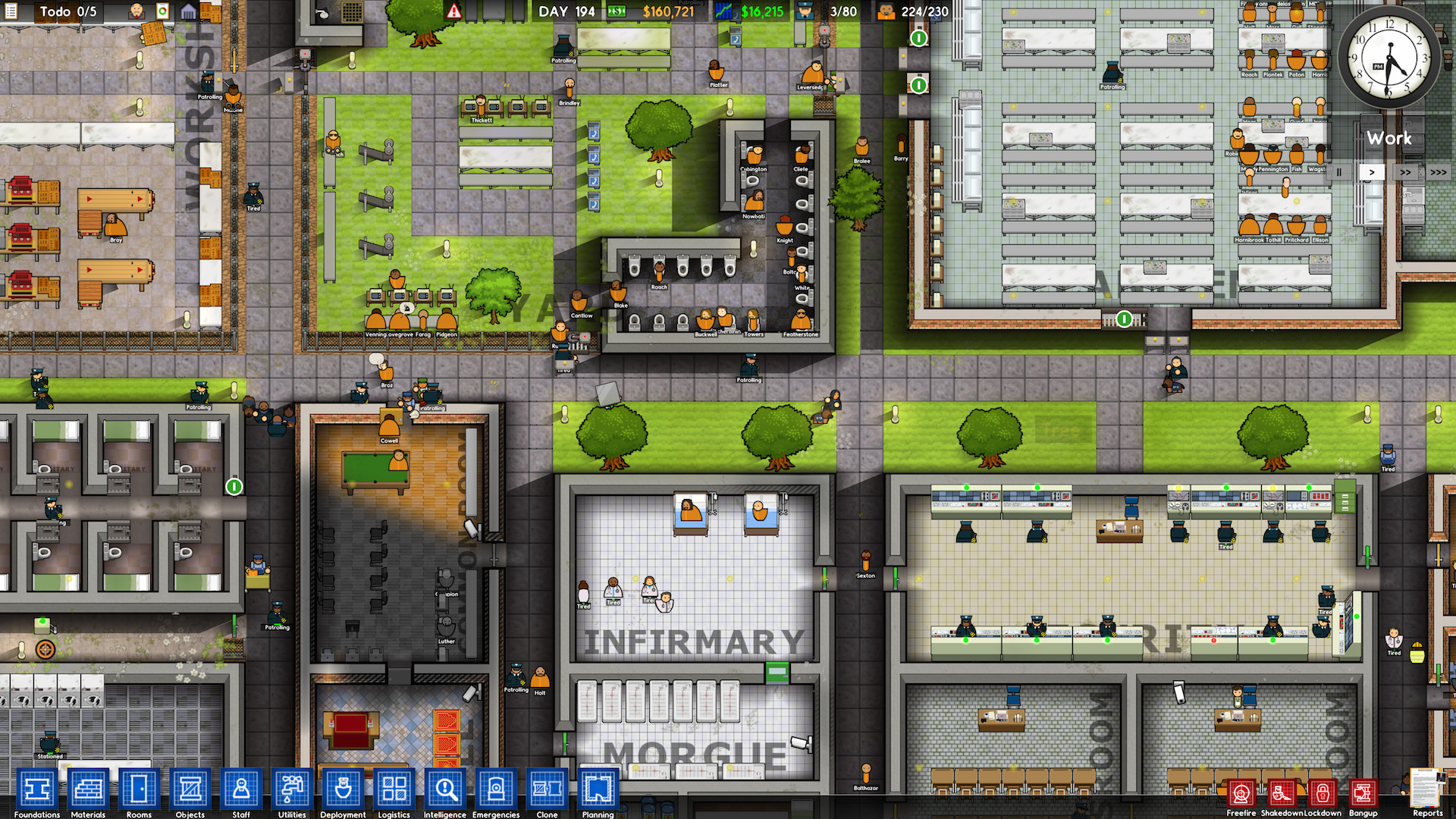
6. Prison Architect
Prison Architect differs from other management games in one fundamental way. The people who you’re building the infrastructure for don’t want it. Your job is not to give the people you manage what they want, but to prevent them from having it.
This fact makes Prison Architect unique amongst management games. Everything you build in Prison Architect has two functions; to facilitate the needs of your prisoners, and to minimise the risk of them escaping. You can try to be a “nice” prison warden if you want. But no matter how much space you give them in their cells, how many amenities you offer, you’ll never make your prisoners happy. And if you’re too soft, you’ll find the foundations of your prison soon turn into a rabbit warren, as prisoners dig networks of tunnels in a bid to escape.
Prison Architect also offers a fascinating commentary on modern incarceration. As Warden, you’re reliant on grants to keep the prison afloat, which you can acquire by completing certain construction tasks and creating amenities that allow you to keep different kinds of prisoners. But you also get money for each prisoner you incarcerate, so there’s a temptation to cram them in like battery hens, scooping up armfuls of money-eggs from beneath your suffering inmates. Prison Architect isn’t exactly the most cheerful management game around, but it is undoubtedly one of the most intriguing.
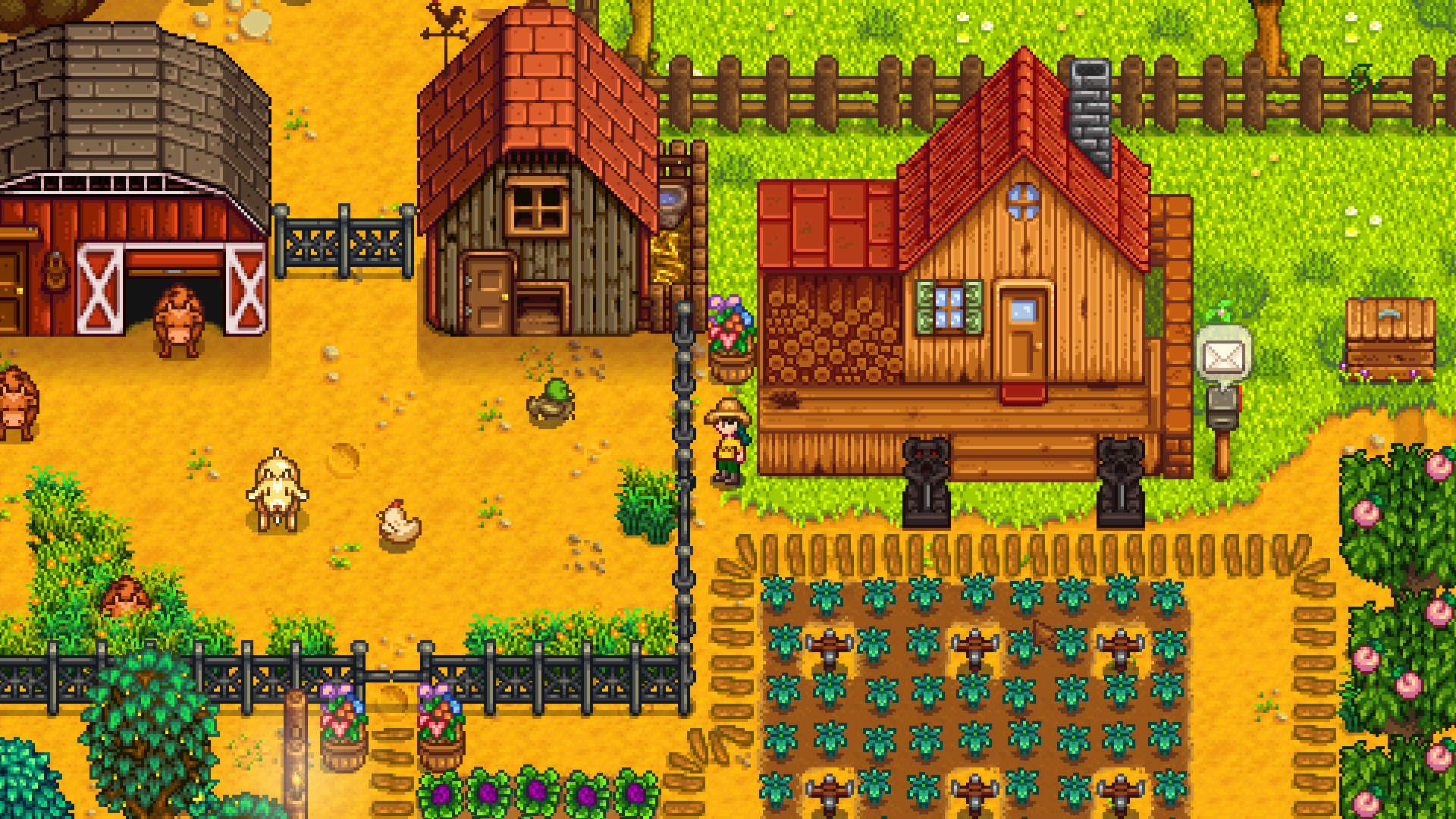 5. Stardew Valley
5. Stardew Valley
If all this talk of management prisons and zoos and nightmare end-of-world scenarios all sounds way too stressful for your liking, then what you need is a holiday to Stardew Valley. The game tasks you with growing and maintaining a farm you inherit from your grandfather, planting and tending crops before selling them on so you can plant and tend more crops.
Stardew Valley isn’t massively original, but it is undeniably joyous. Its charming visuals, upbeat music, and gentle feedback loops are all designed to help you sink into its virtual home away from home. As you travel into town to sell your crops, you’ll gradually establish relationships with the townsfolk, learning their stories and opening up new opportunities to expand your farmstead.
Given the current situation, games that act as pure de-stressors are more valuable than ever, and Stardew Valley is one of the best examples of this.
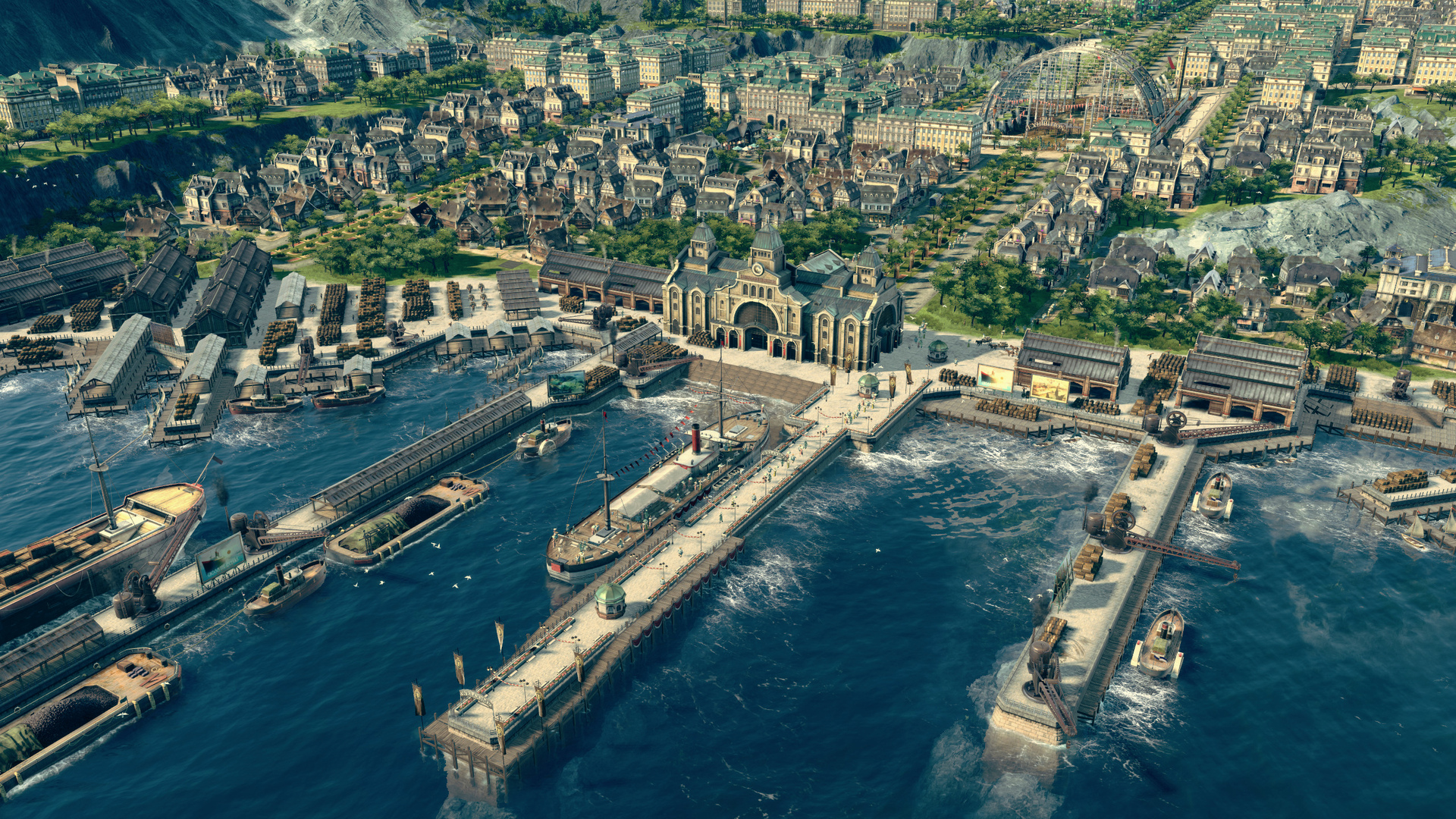
4. Anno 1800
The Anno series has always been a quietly competent city-builder, offering historical and occasionally futuristic management challenges in a satisfying, albeit never particularly striking manner. Anno 1800, however, is an excellent exception to this rule. Putting you in the role of a budding industrial magnate, it charges you with taking a pre-industrial farming village and transforming it into a fully-mechanised hive of work and profit.
Anno 1800 is fundamentally a game about detail. Every road, house and building in your city has been artfully and painstaking modelled, lending a palpable sense of life to your ever-expanding metropolis. Meanwhile, the game’s labyrinthine production chains are an absolutely joy to grapple with, requiring you to carefully structure the city so you have enough farmers to support your workers, and a sufficient amount of rum being imported from your colonies to keep your artisans happy. You’re not just building production chains, but a social Jenga tower, and if one of the blocks in the middle gets unexpectedly pulled out, the whole thing can come crashing down.
Most impressive of all, however, is how clearly Anno 1800 communicates its systems. Not only is the way your city grows truly breath-taking, you always know exactly what each building is doing, what resources are being transported where. It’s a superbly designed metropolitan engine, and a delight from start to finish.
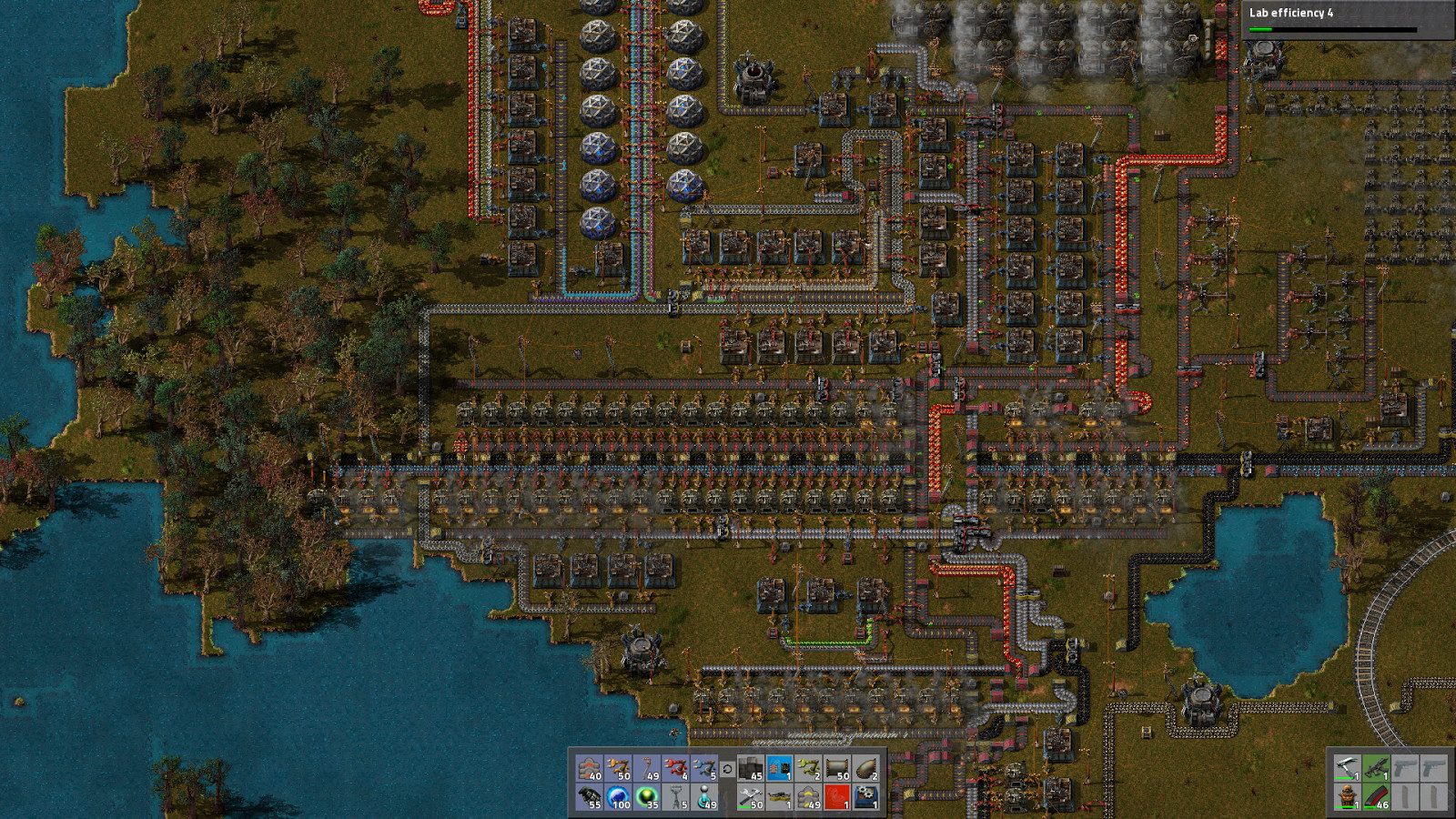
3. Factorio
Like city-building games, I think factory-building games are destined to become a managerial sub-genre of their own. When it happens, they’ll have Factorio to thank.
Factorio is essentially a game about building a production engine, but it takes that idea far more literally than most management games. Then it injects it with steroids. At its most basic, it’s about building a factory. But not just any factory. You’re building Willy Wonka’s Factory, an obscenely complex network of production that straddles the line between genius and madness. Imagine a SimCity city that’s 100% Industrial Zone, and you’re not far off the mark. Your roads become conveyor belts, your buildings become furnaces, assemblers, and recyclers. What are you making? It doesn’t matter! All that matters is you make, and make more, forever, until everything that can possibly be made has been.
Factorio is the ultimate expression of the satisfaction a good production line can bring, the joy of setting up an automated system so that it does all the work for you, and the terror when a tiny flaw in that system shuts the whole operation down. It’s one of the most significant management designs in years, which is all the more astonishing when you consider it is still officially in Early Access. If your brain is tickled by the idea of making things, then Factorio will make you laugh yourself to death.
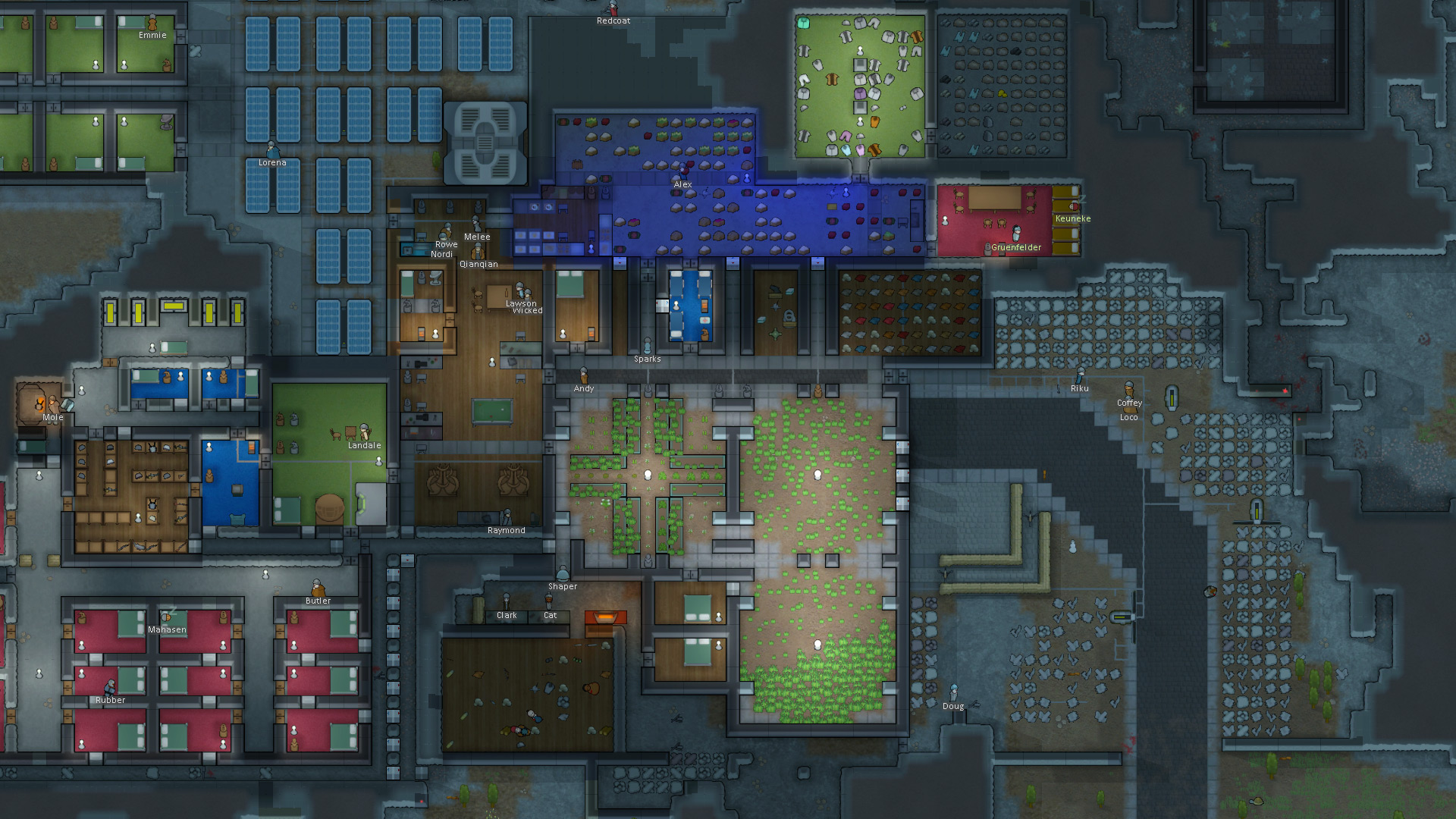
2. RimWorld
If depth is what you’re after in your management sim, then RimWorld should be your first spaceport of call. RimWorld tasks you with building and maintaining a space colony on an alien planet that isn’t so much hostile as downright psychopathic.
Even at a base level, RimWorld’s list of features is impressive, fully supporting base-building, trading, farming, combat, and questing. Yet running alongside these macro features is a huge amount of micro-detail. Your colonists have individual needs and moods which affect their friendships and relationships with other colonists. They can fall in and out of love, develop addictions and illnesses, suffer injuries, and even have limbs replaced by prosthetics.
As if that wasn’t enough, your whole experience is overseen by an AI storyteller. Designed to lend a sense of drama, the storyteller will assess your progress and throw in obstacles and boons that depend upon your specific situation. In this way, RimWorld is designed not just as a management sim, but also a story generator, and as a result its potential to entertain is virtually endless.
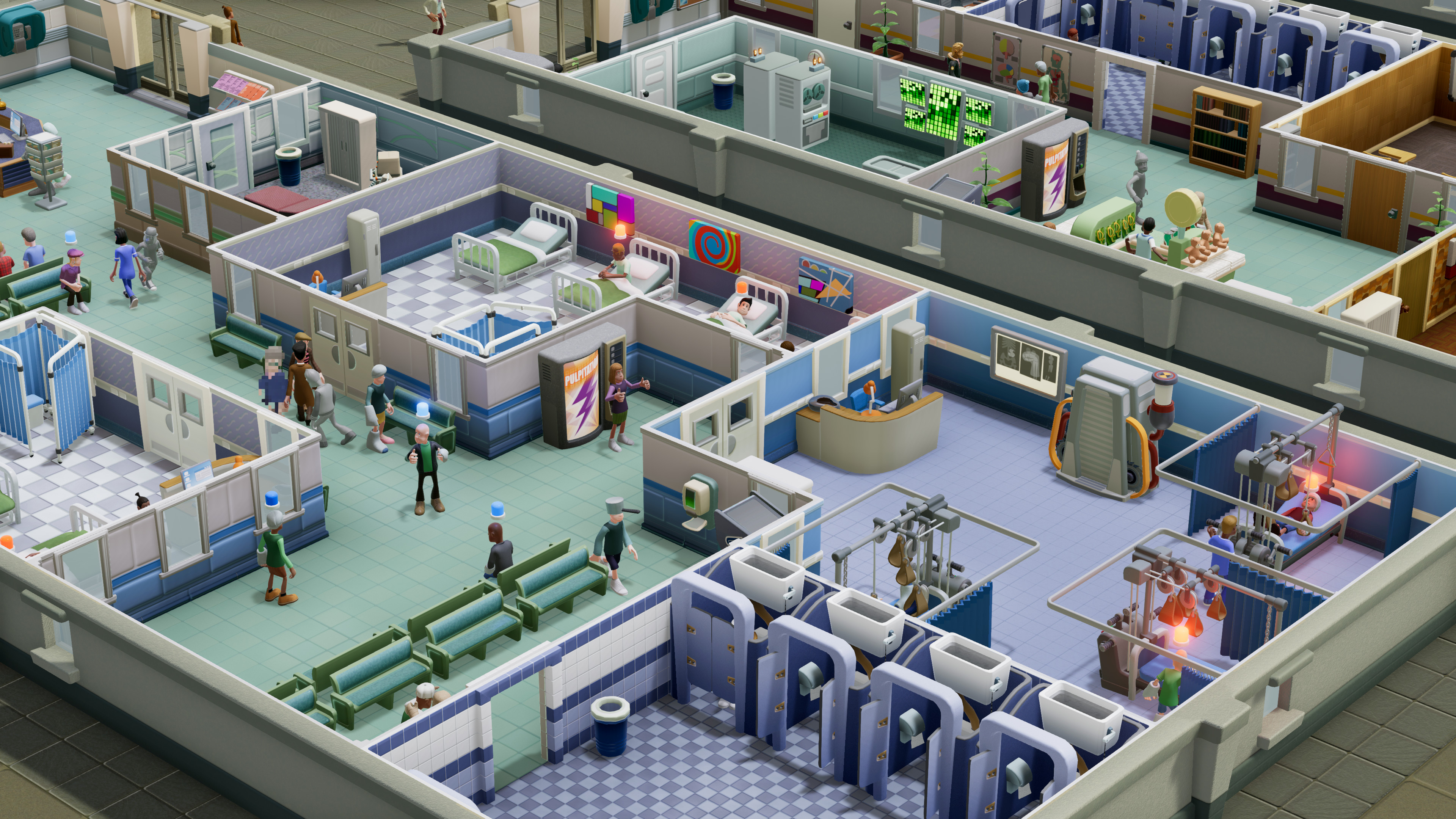 1. Two Point Hospital
1. Two Point Hospital
Theme Hospital is arguably the best management sim ever made, so it takes some talent to create a game that lives up to it. It does help, however, if you’re the people who came up with Theme Hospital in the first place. This is exactly how Two Point Hospital came to be, and also why it's absolutely bloody brilliant.
Like the game that inspired it, Two Point Hospital has just the right balance of everything to make it welcoming to virtually all-comers. It’s wonderfully presented, highly accessible, and has a fantastic sense of humour. The first time I saw a caretaker deal with a ghost haunting the hospital by hoovering it up, I think I laughed for about a minute straight.
But there’s also a surprising amount of depth here. There’s a wide range of different illnesses, which must be diagnosed and then treatments researched. At the same time, you need to ensure that your hospital's books are balanced and that patients are actually being cured, rather than sitting outside the GP’s office in queues longer than for an ABBA reunion concert. The campaign offers some fantastically-devised challenges, such as repairing a hospital that suffers from frequent power surges and running a high-altitude treatment centre that has to cope with large influxes of broken bones.
Two Point Hospital isn’t necessarily the deepest or smartest management game around, but its balance between light-hearted fun and serious management means it can be recommended to virtually anyone. That, for me, makes it the best management game of the last decade.

MSI MPG Velox 100R Chassis Review
October 14 2021 | 15:04







Want to comment? Please log in.